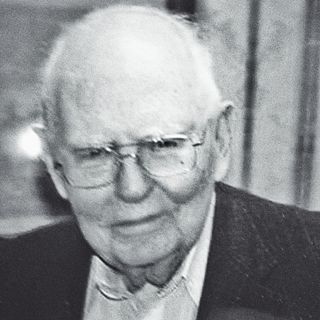A Quote by Kent Haruf
We'd do better to follow the admonition of Jesus about loving our neighbours. People in the U.S. are capable of forgiveness and willing to see one another's point of view, but when matters become politicised, we're less able to do that.
Related Quotes
If we can find forgiveness in our hearts for those who have caused us hurt and injury, we will rise to a higher level of self-esteem and well-being. Some recent studies show that people who are taught to forgive become 'less angry, more hopeful, less depressed, less anxious and less stressed,' which leads to greater physical well-being. Another of these studies concludes 'that forgiveness ... is a liberating gift [that] people can give to themselves.'
My view is that I would love to see people united and loving one another, working with one another, supporting one another. I think that's a beautiful vision, so anybody trying to bring that about, I'm all for it. However, I would hate to see people pretending to unite people just for the sake of relocating them.
But every point of view is a point of blindness: it incapacitates us for every other point of view. From a certain point of view, the room in which I write has no door. I turn around. Now I see the door, but the room has no window. I look up. From this point of view, the room has no floor. I look down; it has no ceiling. By avoiding particular points of view we are able to have an intuition of the whole. The ideal for a Christian is to become holy, a word which derives from “whole.
To follow Jesus implies that we enter into a way of life that is given character and shape and direction by the one who calls us. To follow Jesus means picking up rhythms and ways of doing things that are often unsaid but always derivative from Jesus, formed by the influence of Jesus. To follow Jesus means that we can't separate what Jesus is saying from what Jesus is doing and the way that he is doing it. To follow Jesus is as much, or maybe even more, about feet as it is about ears and eyes" (The Way of Jesus, Eugene H. Peterson, 22).
... many Hindus are willing to consider Jesus as a legitimate manifestation of the divine... many Buddhists see Jesus as one of humanity's most enlightened people.... A shared reappraisal of Jesus' message could provide a unique space or common ground for urgently needed religious dialogue - and it doesn't seem an exaggeration to say that the future of our planet may depend on such dialogue. This reappraisal of Jesus' message may be the only project capable of saving a number of religions.
It's just a lot of fun to be able to see your ideas come into fruition. And to see people translate the things that come out of my mind vocally. And to be able to produce vocals and give people my point of view musically. And to be able to sit in the crowd and see people sing the song that I wrote, it's an amazing feeling.
We would like you to reach the place where you're not willing to listen to people criticize one another... where you take no satisfaction from somebody being wrong... where it matters to you so much that you feel good, that you are only willing to think positive things about people... you are only willing to look for positive aspects; you are only willing to look for solutions, and you are not willing to beat the drum of all of the problems of the world.
Surprisingly, it's forgiveness, not guilt, that increases accountability. Researchers have found that taking a self-compassionate point of view on a personal failure makes people more likely to take personal responsibility for the failure than when they take a self-critical point of view. They also are more willing to receive feedback and advice from others, and more likely to learn from the experience.
Our world does not need to hear more people talk about God or even about Jesus if those people do not have a lifestyle that reinforces every word they utter. The interesting thing is that the closer we walk in intimacy with God, the less we have to say. Our very lives become a bold and beautiful testimony to the purity, the freedom, and the beauty of the Lord Jesus.
I follow the way people change. I follow the way people, who are very antagonized to one another become very close to one another and vice-versa. Sometimes I follow the way people who are intimately close to each other move apart. This is my business as a novelist. It is not about positions and ideas.
Missions then is less about the transportation of God from one place to another and more about the identification of a God who is already there [...] You see God where others don't. And then you point him out. So the issue isn't so much taking Jesus to people who don't have him, but going to a place and pointing out to the people the creative, life-giving God who is already present in their midst.







































